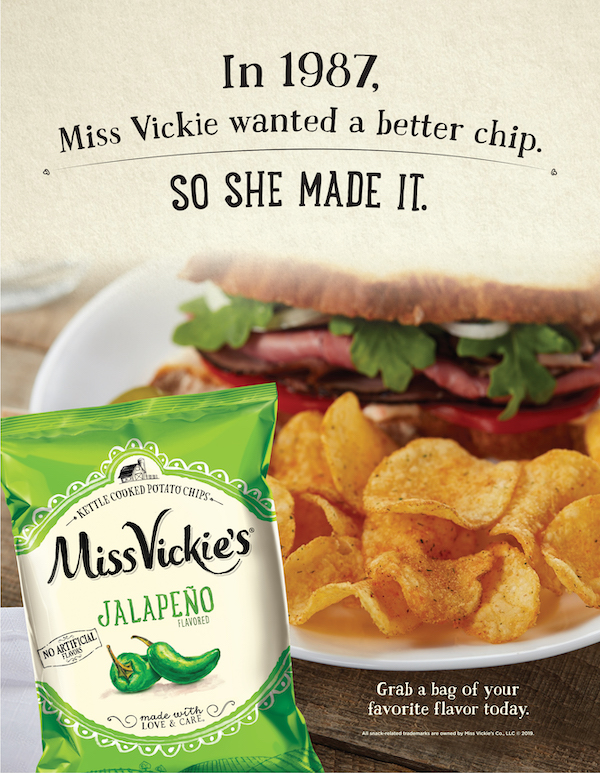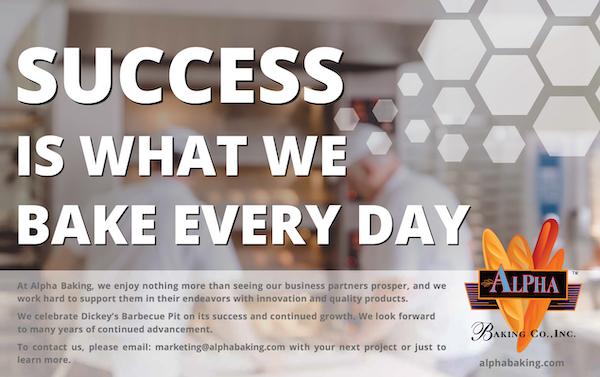Laura Rea Dickey only needs to look out the window of Dickey’s Barbecue Pit home office to see the oldest, continuously operating restaurant in Dallas, Texas. It just happens to be the original Dickey’s Barbecue Pit, founded in 1941 by her grandfather-in-law, Travis Dickey. “It’s a restaurant that has never moved, changed ownership or shuttered its doors,” she explains to The CEO Magazine.
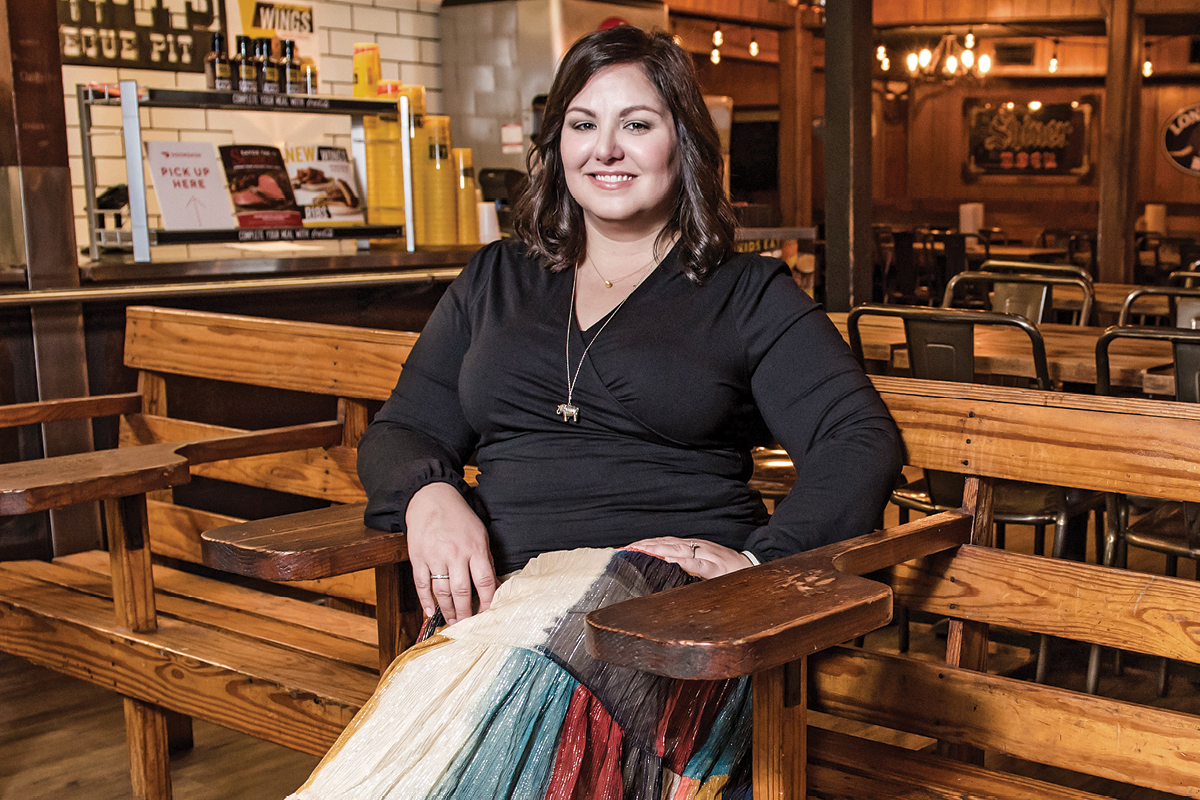
Travis and Miss Ollie Dickey’s early menu of beef brisket, pit hams, barbecue beans, potato chips, beer, bottled milk and sodas proved so popular that, by the next generation of Dickeys, the business was ready for expansion; first regionally and then, once franchising was introduced in 1994, nationally. Currently, there are more than 500 restaurants in 44 US states and the United Arab Emirates serving up its authentic, slow-smoked Texan barbecue.
“We have a strong sense of history, family and competition-style barbecue, where it’s all about the food,” Laura responds when asked how the business has retained its Southern flavor and feel while growing outside of its home state. “When we tell folks our story and explain to them who we are and what we have been doing for 78 years, that brings an authenticity that doesn’t just attract folks to the brand, it’s also what sets us apart.”
“We have a strong sense of history, family and competition-style barbecue, where it’s all about the food.”
Laura hails from Wheatland, Wyoming, but Dickey’s has been in her blood since a chance meeting with Roland Dickey, Jr., Travis’s grandson, during university. “I was going to school in Fort Worth, where there’s this great barbecue scene,” she recalls.
“I had come to Dallas for a job interview and I ran into Roland socially. He made me promise to try Dickey’s before I drove back to see what great barbecue really is.” She kept her word and it wasn’t just the “really, really good food” that impressed her. Now her husband – Roland – is CEO of parent company Dickey’s Capital Group.
It’s an exciting time to be at the helm of a business steeped in heritage and tradition. A South American expansion deal, which will see the first of 100 Brazilian locations open in São Paolo in early 2020, adds to the locations already operational in the UAE.
“If you had said to my grandfather-in-law or father-in-law that, one day, you’ll be serving Texas-style barbecue in Dubai and Abu Dhabi, they would have thought you were crazy,” she laughs.
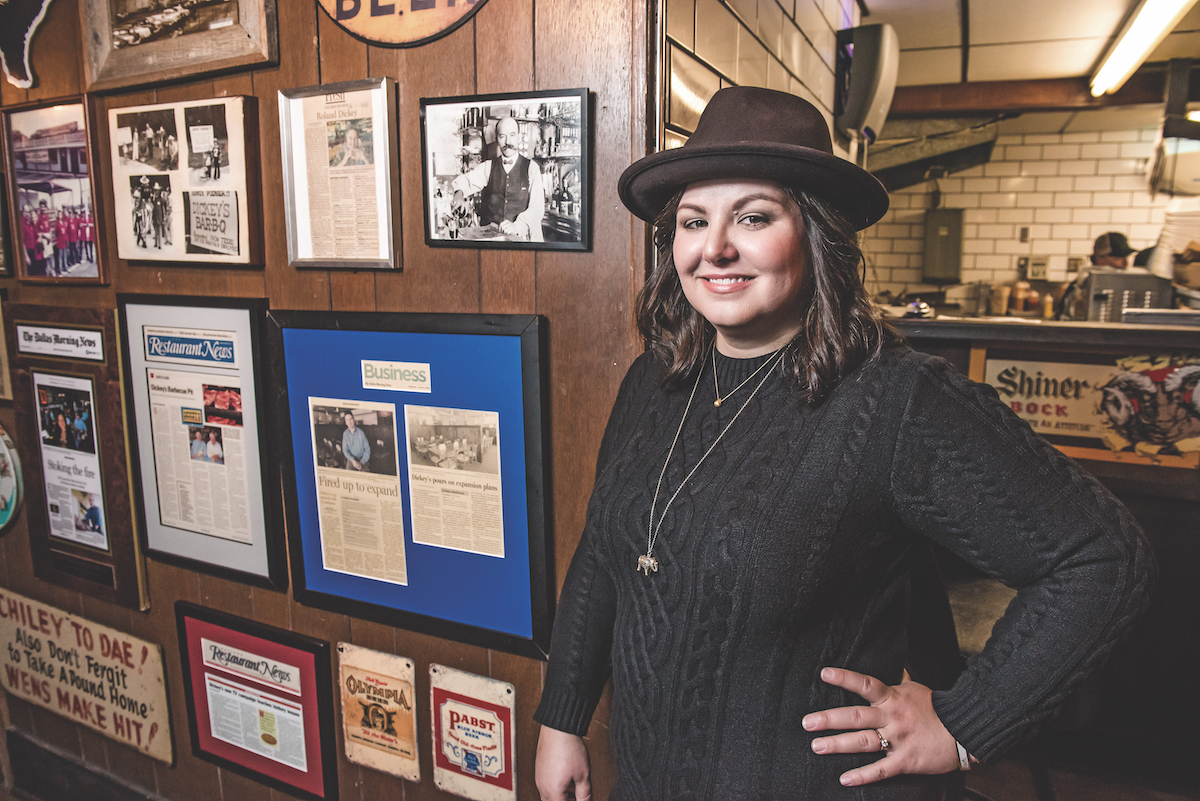
She credits its Emirati partners and owner operators, Serenity Hospitality LLC, with maintaining the brand’s identity while navigating specific cultural requirements.
“They have been very good partners in helping develop recipes with our corporate chefs that are still on brand and have that Texas barbecue feel to the preparation and spicing, but that are more palatable to the local customers,” she explains, adding that pork has been pulled from the menu and replaced with beef and lamb alternatives.
Despite the “wonderful cultural nuances and differences”, a visit to Abu Dhabi showed Laura firsthand that, whether expat or local, “folks really want to experience authentic Texan cuisine, and Dickey’s is just that.” She adds, “While I’m excited about any place that we get to take the brand, that was particularly gratifying.”
“Folks really want to experience authentic Texan cuisine, and Dickey’s is just that.”
With a background in marketing and information technology, prior to transitioning to the CEO role, Laura spent eight years as its CIO, where she oversaw the implementation of an entirely new technology infrastructure.
“In the restaurant business, it used to be that if you had outstanding food and very good marketing, you could be outstanding,” she says. “Now, I believe you also have to have outstanding technology to be competitive, to maintain your edge.”
The catalyst for the transformation was the global financial crisis. Having successfully navigated through it, the company resolved to do things differently going forward.
“One of the most fundamental pieces was that we had good information and narrative, but it was siloed – one team had access to information that another team did not,” she says.
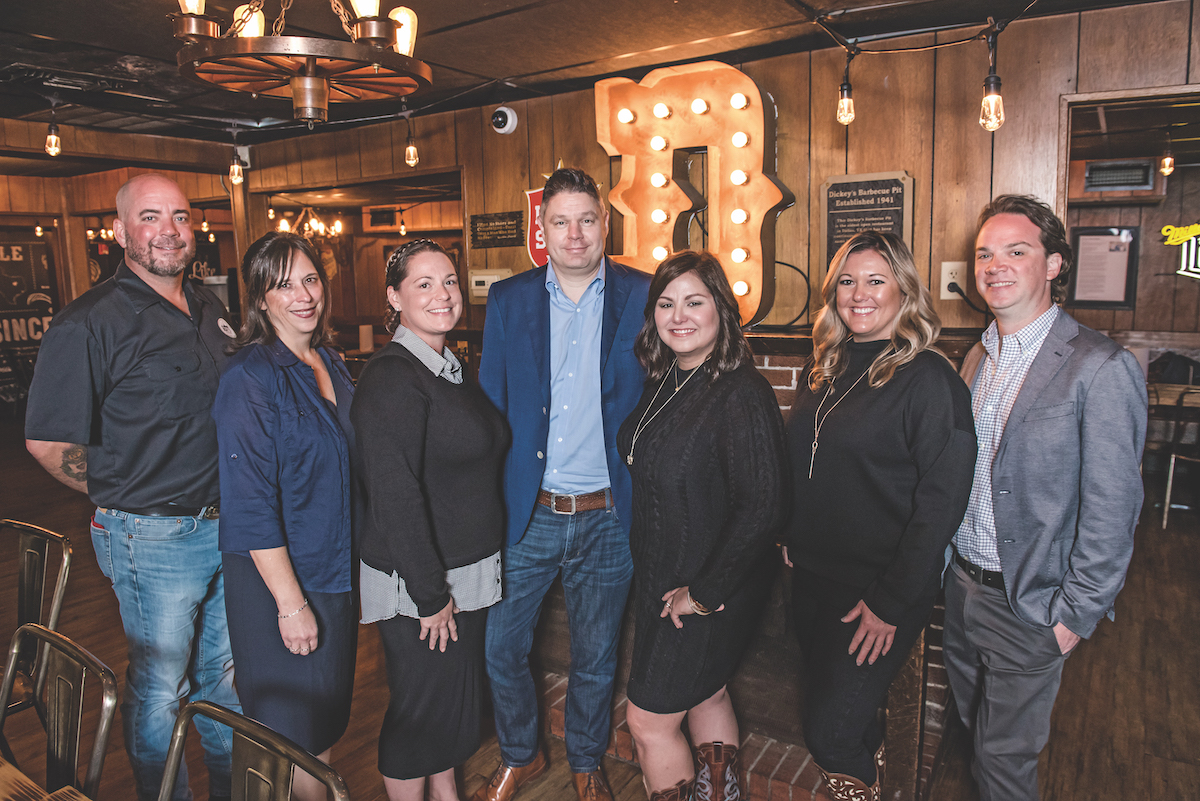
Initiatives included introducing parity in data security and installing the same baseline system in all restaurants across the brand. “We’ve built a proprietary tech infrastructure that supports our proprietary in the way you run a barbecue restaurant. It’s easy to read and connect, so our owner operators can put their focus and energy into great food, customer service and going out and building their business in the community – all the things that technology can’t do for them.”
She acknowledges that, for a brand of its age, change didn’t come easily. “It was a painful and necessary challenge because we’ve had owner operators that have been with us 20, even 25, years.
Our central location hasn’t shuttered its doors and didn’t have a computer system in the restaurant, but our customers have pulled us there, and the business infrastructure required it,” she adds, saying that 12% of brand sales are now done online – a figure that reaches up to 30% in some individual locations.
“That is obviously something that is a huge shift for us in our history,” she continues. “While I’d love our customers to come into our dining rooms to enjoy our barbecue, as long as they are having our barbecue, then we need to find the best way to do business.”
Despite the transformation the past decade has brought to the business, some things never change and the current generation of Dickey’s is committed to staying true to its roots. “Which is food, then our folks,” Laura explains.
“We are passionate about the art of great barbecue, which is why we have opened up our kitchens so that we can be seen smoking our meats onsite. Every restaurant has a certified pit master that has to complete a course in Dallas before they can own and operate a Dickey’s restaurant. We have very high standards for preparation and quality.”
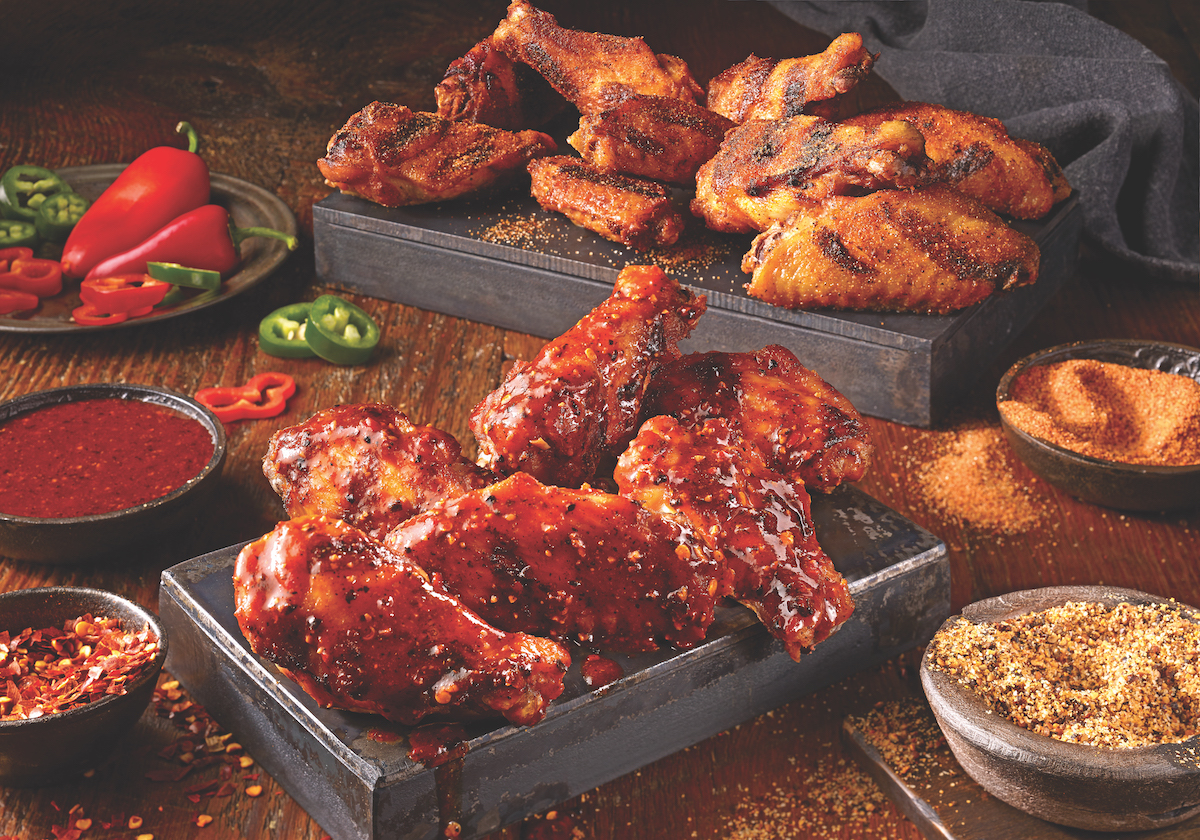
For Laura, sustaining this excellence and the legacy of the menu – all while continuing to grow – is her key area of focus. “What I would love to see is that Dickey’s maintains being not just the largest barbecue restaurant in the US, and really the world, but also the best,” she says. “Even if folks have a different idea of barbecue, I want them to think, ‘Gosh, that was just fantastic barbecue.’”
This passion for food, especially barbecue, is what Laura names as a prerequisite to becoming a franchise partner, or owner operator, as they are referred to in the company.
“We have such a diverse system of owner operators. Some come in as very experienced franchisees who are looking to expand their portfolio. Others are new to the industry, having saved up maybe their whole professional lives to be their own boss and are looking for the right partnership. The resounding requirement, for us, is that an owner operator is food-focused, loves barbecue, has passion and is involved,” she explains.
Food for thought
What would Laura say is Dickey’s secret ingredient for success?
“It’s understanding that food comes first. That you absolutely, no matter what, have to serve the very best barbecue because that is what will bring folks in, and that is what will keep folks coming back. And if you don’t win there, then it really doesn’t matter what else you do,” she responds.
“I will tell anyone who wants to join the system that this is not a passive investment; that we call our franchisees owner operators for a reason,” she adds. “My expectation is that they’re joining a family and we’re here to support them, but they really must be in their restaurant.”
Because, as she continues, barbecue is a little more difficult than other types of food or franchises. “It’s not pizza, it’s not burgers, it’s not sandwiches,” she says.
A company that has lived through multiple decades and generations, Laura reflects that, more than ever, it’s an interesting time to be in the food business. “The restaurant industry is changing so much and so are our customers. How they want to do business is changing,” she says. “You have to evolve or fail. (Evolving) is something that, as a brand, we have committed to doing.
“But, endearingly, if you stay food-focused and true to who you are, what you do, and why customers originally loved you, then you can really be a 78-year-old brand that’s competitive and top of the category. Despite all this change, folks want good food first. If you do that well, then you can be successful.”
Prudly supported by:
